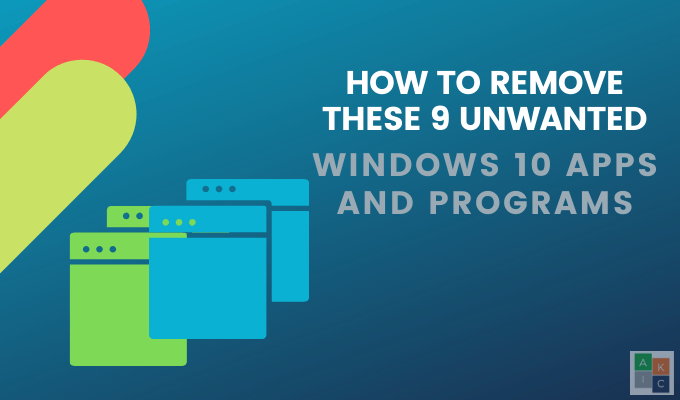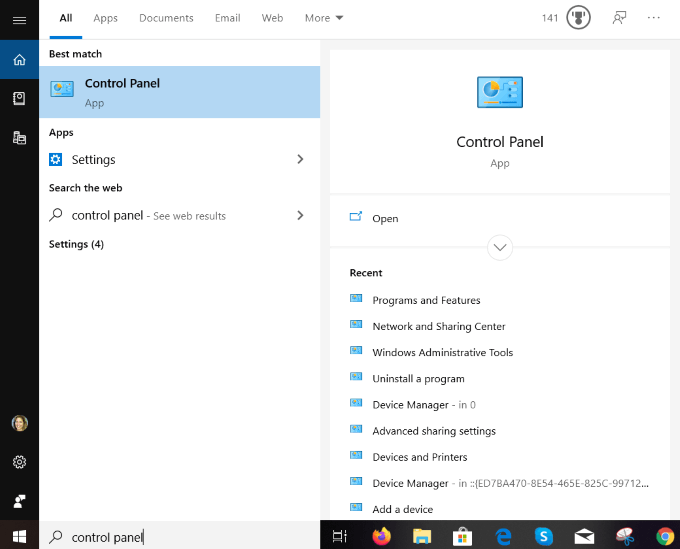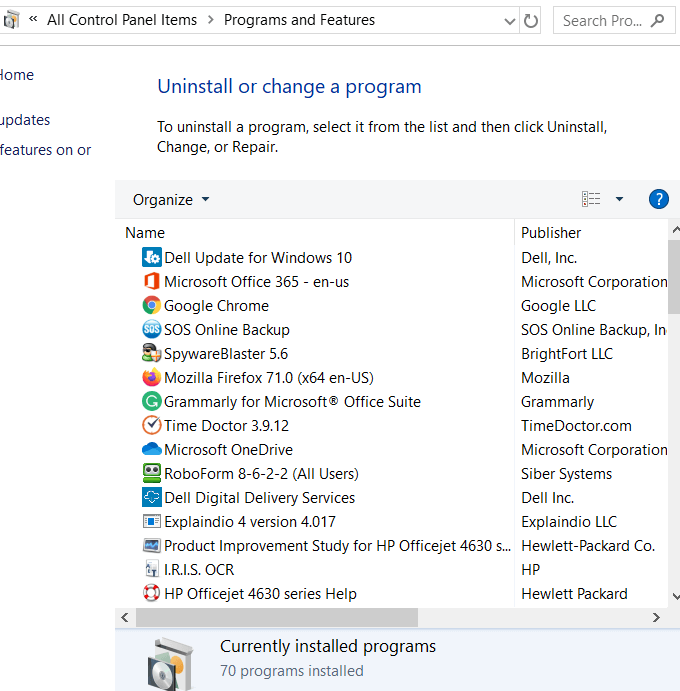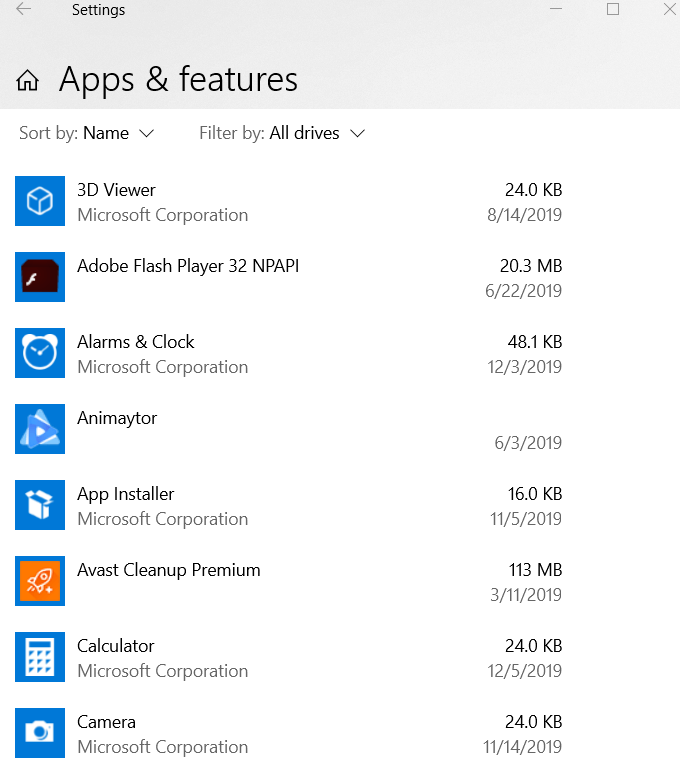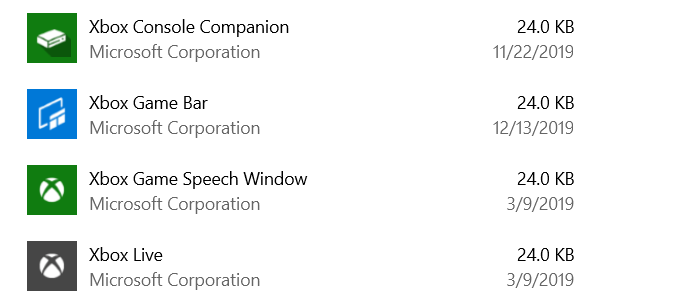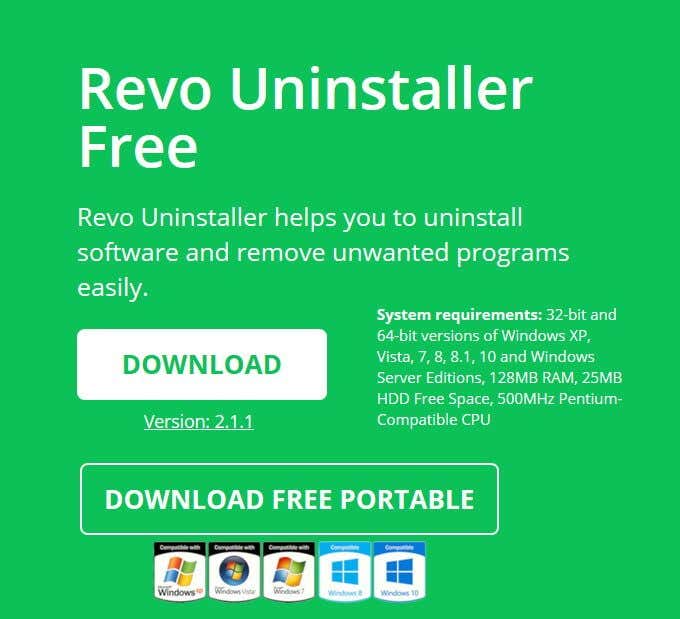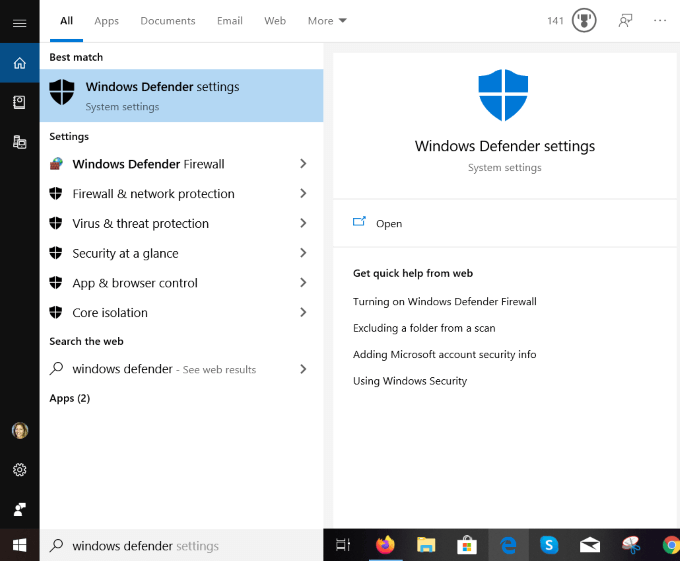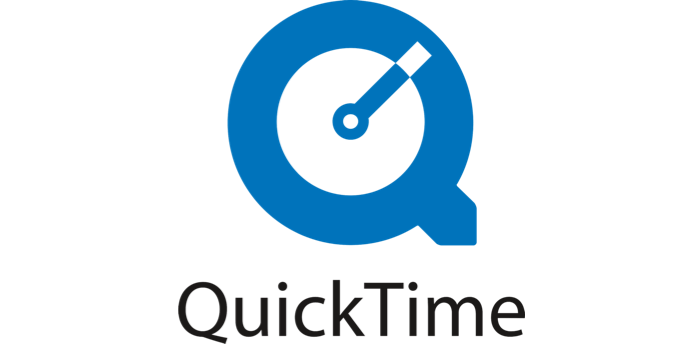All Windows installations come with built-in apps. They take up valuable space on your hard drive. Often these are start-up programs that can also affect your computer’s performance by running in the background and slowing it down. Unused or outdated programs can also contain dangerous or malicious code. These unwanted programs that you never asked for in the first place are called bloatware. They include:
JunkwarePreinstalled trialsToolbarsAdware
How do you identify and remove unwanted Windows 10 apps and programs?
Scan Your Installed Programs & Use Regular Uninstall
Look through every installation by typing Control Panel in the search bar and clicking on it.
Click on Programs and Features to see a list of every program and app installed on your computer.
Browse through the list and see if there are any programs you don’t want or need. If there are, click on each of them and then hit the Uninstall button to remove them.
Don’t delete something if you are not sure what it does. Some work with other programs or apps to enable them to work. For example, drivers and some support programs are related to your hardware, so don’t delete them. If you do, you might break something. If you aren’t sure, do a Google search for the name of the unwanted Windows 10 app or program to see what it does and if your computer needs it.
Uninstall Preinstalled Or New Windows Apps
For Windows 8 and 10 users, many apps come pre-installed. Some are isolated from the rest of your system, unwanted, and difficult to find.
To find them click on the Start button and then click on the cog icon.
Click on Apps and then Apps and features.
Scroll through the list to see if there are any games or apps you don’t use or want. For example, if you don’t play games on your computer, you might want to remove programs such as Xbox and its components.
To uninstall, click on the app, and then select Uninstall.
Your Windows system might include outdated, redundant apps or programs that are no longer supported and potentially malicious. Below are nine examples of unwanted Windows 10 apps and programs, and how to remove them.
PC Optimizer Pro
Many users have at some point, intentionally or by accident, installed a PC-cleaning app. Most of these products are useless, and many are harmful because registry cleaners don’t improve Windows’ performance. PC Optimizer Pro is an example. It is advertised as a system optimizer that claims it has detected several issues on your computer when installed. If you try to fix the issues, it will tell you that you need to buy the full version to do so. To remove it from your computer, follow the steps below.
First, try to uninstall PC Optimizer Pro via the Windows Control Panel. Right-click on the Start button, Control Panel > Programs and features.Search for PC Optimizer Pro. If you find it, click on it and then select Uninstall. If it doesn’t show up in your programs, try Revo Uninstaller to remove it completely.
MyCleanPC
MyCleanPC is another fraudulent system registry cleaner. The Microsoft community strongly recommends against using MyCleanPC and other programs that claim to clean your registry and optimize your system. Instead, they often cause harm to systems by destroying necessary settings and files and rendering Windows unusable. Microsoft’s Windows Defender is preinstalled and built into the operating system. It will detect MyCleanPC and associated tag files as a potentially unwanted program.
Windows Defender quarantines the files in real-time and blocks them from accessing your computer. Type Windows Defender into the search bar and click on it.
Click on Virus & threat protection > Threat history. Under Quarantined threats, click on See Full History.Look for MyCleanPC and click Remove.
Java
Only certain features of some programs such as LibreOffice and Apache OpenOffice need Java to run correctly. Java doesn’t run on the most recent browsers. Unless you are an Android developer or are using specialized software that requires Java, you should uninstall it. At the very least, make sure you are using the most updated version of Java to avoid putting your privacy and computer at risk.
To manually uninstall Java from Windows 10, click Start > Settings > Apps > Apps & features. Search for Java and then click the Uninstall button.
If you don’t know if you need Java, be sure you are running the latest version.
Start by typing Java into the Start menu. Click on Check for Updates to open the Java Control Panel. Click Check Now. If there is an update available, you will see a popup that says Java Update Available. Click Update to complete the installation of the latest version of Java.
QuickTime
QuickTime is currently used on macOS as Apple’s video player. However, the Windows version has not been supported since 2016. It also has a few critical vulnerabilities and is therefore no longer safe for Windows machines.
Uninstall QuickTime using the Regular Uninstall process described above. Go to Control Panel > Programs and Features.Start by searching for QuickTime, click on it and select Uninstall.
Coupon Printer
The Windows Coupon Printer provides access to deals from Coupons.com. However, the software is often bundled with other programs, and many users don’t realize they installed it. You can use the same program without downloading any software. Uninstall the Coupon Printer with the same Regular Uninstall process as follows: Control Panel > Programs and Features > select Coupon Printer by Coupons.com > Uninstall.
Microsoft Silverlight
Microsoft Silverlight is a web framework developed for running Internet apps and is like Adobe Flash. It is not supported anymore by modern browsers because most of them have transitioned to HTML5.
To uninstall Microsoft Silverlight, go to Control Panel > Programs and Features > Add or remove programs.Scroll to find Microsoft Silverlight, click on it, and then click Uninstall.
Shockwave Player
Like Adobe Flash Player, Shockwave Player is a runtime plugin. It was discontinued in April 2019 and is no longer offered for download. You can uninstall it using the conventional Windows 10 standard removal as many of the programs and apps above. Go to Control Panel > Programs and Features > Add or remove programs. Find Shockwave Player, click on it, and then select Uninstall.
My News Wire
My News Wire is an ad-supported app developed by SaferBrowser that claims to give users easy access to live coverage and favorite news channels. It often sneaks onto your computer without your knowledge. Once installed, it will start redirecting searches and show annoying popups. Since its business model is to make money from ads, it is known to spread malware and adware infections.
uTorrent
uTorrent is a popular torrent client that has, in recent years, got chunky, bloated, and even dangerous. It is now considered untrustworthy by many because it has been found to bundle with cryptocurrency mining software, includes offers for junk browsers, and wastes your system resources. To uninstall uTorrent, first try finding it in the list of programs on your computer, and use the regular uninstall method. If you can’t find uTorrent listed, use one of the methods below.
Manually Uninstall & Delete Leftover
Start by logging in as an administrator. Press the Ctrl + Alt + Delete keys in Windows 10 to open the Task Manager.
Look under Background processes for anything related to uTorrent and click the End Task button. Be warned that incorrectly modifying the registry can cause serious system errors. If you aren’t tech-savvy, it’s best to leave this step to a PC expert.To remove invalid registry entries, type Control Panel in the search bar > Appearance and Personalization > Folder Explorer Options. Then select View.Check off Show hidden files and folders under Advanced settings.
Press Windows + E to open File Explorer. Type uTorrent in the search bar and delete any uTorrent leftovers you find.
The programs and apps listed above aren’t necessary because they aren’t serving any useful purpose and could be causing your system harm. If you find that you need or want one of them again, you can reinstall it. It’s always a good idea to keep your computer clean by removing unwanted Windows 10 apps and programs you no longer need or want.
